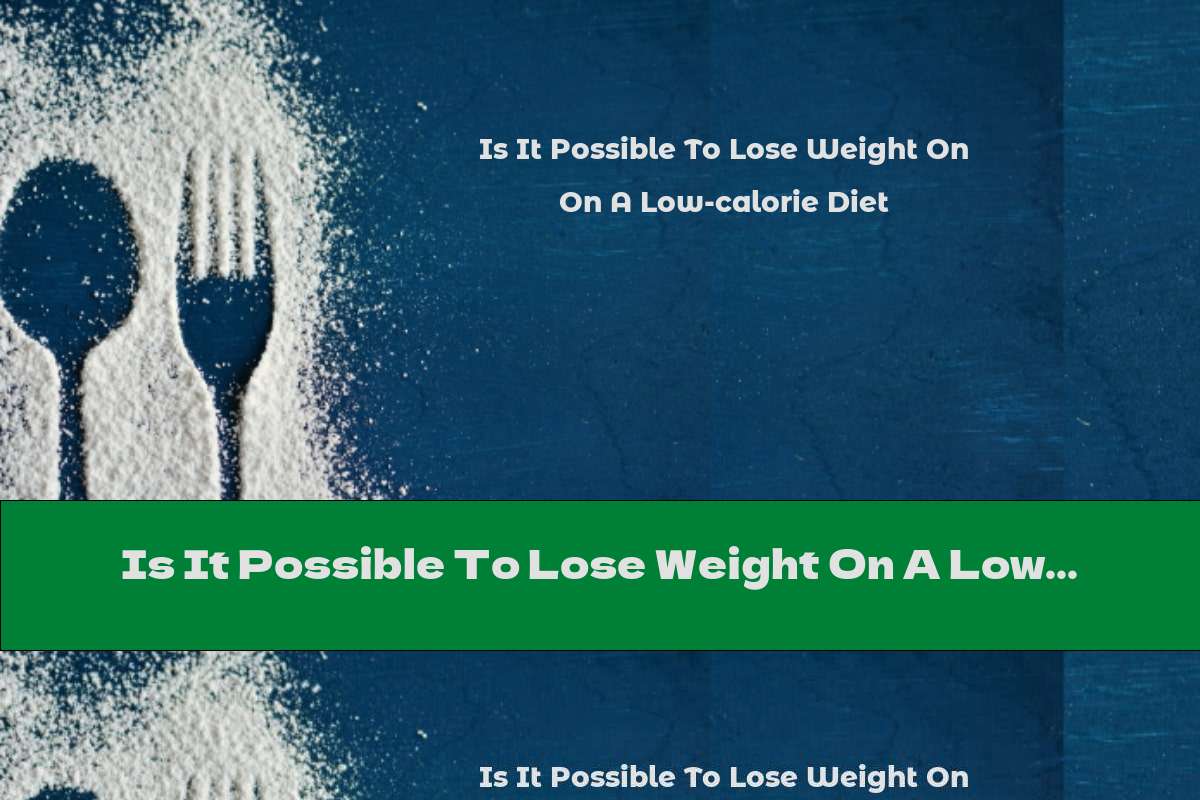Is It Possible To Lose Weight On A Low-calorie Diet
 Author: Alexander Bruni
Time for reading: ~4
minutes
Last Updated:
February 16, 2026
Author: Alexander Bruni
Time for reading: ~4
minutes
Last Updated:
February 16, 2026

Nutritionists don't like strict diets. Let's try to figure out why diets with a strict calorie deficit are not the best idea for losing weight.
It is impossible to lose weight without reducing the caloric content of the diet - this is a well-known fact. But many people who dream of getting a perfect figure in a short time understand this truth in the literal sense. Like, if I go on a low-calorie diet , I will lose weight much faster. Unfortunately, this does not always happen. And even if you manage to get rid of excess weight , when you return to your usual diet , even a balanced and calorically balanced one , the excess weight returns with the supplement. Let's try to figure out why diets with a strict calorie deficit are not the best idea forweight loss
Nutritionists do not like strict diets . They sufficiently undermine health (all hidden problems come out) and worsen the emotional state. Interestingly, all these sacrifices for the sake of a beautiful slender figure in the end turn out to be useless. The formula "Eat less - you will lose weight" works only up to a certain point. There comes a day when the weight stops decreasing. And even if you reduce calories even more , there will be no result.
How the body reacts to a severe calorie deficit
Our body quickly and easily adapts to weight loss and gain . If we greatly reduce the caloric content of the diet , in an effort to lose weight , the body perceives this as a signal that difficult times have come and it is necessary to reconfigure all life processes into economy mode. Which features will change first?
The regulation of vital processes by the brain changesIt is he who controls all the functions of our body, receiving signals from the outside and inside the internal organs. It starts the processes that optimize the body's work in conditions of severe deficiency. It decides how many calories to spend, how much to set aside, how many hormones to form, and so on. The less you eat, the more efficiently your body will learn to use the energy you get from food.
The rate of metabolism decreases
On low-calorie diets , our body does not have the ability to maintain metabolism at a high speed. There is simply not enough fuel for this. Due to what does it decrease? First of all, by reducing the formation of hormones that take part in the processing of substances obtained with food. These primarily include thyroid hormones. Hard diets disrupt its functions.
Body composition changesOn low-calorie diets , in the first 3-4 weeks, there is an active breakdown of protein, including muscle mass. Only then will the body accept fats. And this leads to a decrease in the basic level of metabolism to a minimum. Moreover, the less excess weight you need to lose, the more you risk losing a sufficient amount of muscle tissue on a strict diet . In case of obesity, this volume will be slightly smaller.
Consequences of low-calorie diets
Let's summarize: a severely reduced diet leads to a decrease in the speed of metabolic processes and changes in body composition. For a while, the weight on such a diet will decrease, but then a plateau period will come. The body, an intelligent balanced system, will learn to survive even in difficult conditions.
For obvious reasons, it is impossible to stay on a diet of 500-700 calories for a long time. Sooner or later you will return to your usual diet. And even if you add healthy and useful products to it, then with a high probability you will gain all the lost kilograms. The body is so used to living in a deficit mode that it has learned to get maximum energy from even a small amount of food. After low-calorie diets , you may feel like you are literally gaining weight from a lettuce leaf. Moreover , weight gain is quite fast.
Also, the caloric content of the diet of 500-700 calories undermines the activity of the thyroid gland, which significantly reduces the rate of metabolism.
How to change your diet in favor of a healthier one
The main advice in matters of weight loss is to look at the situation rationally. No quick diet will provide long-term results. Yes, maybe you will lose 5 kilograms in a couple of weeks, but then gain twice as much.
If you decide to lose weight , determine how many calories you can reduce your diet . Calculate your daily caloric intake , taking into account age, gender and physical activity. Now subtract 300-350 kcal from this number. This should be the value of your diet during weight loss . And don't forget to change it as you lose excess weight .
Let's say you're already on a low-calorie diet and want to get off it with minimal consequences. Do it gradually. Increase the number of calories by an average of 100 calories per week, bringing the energy value of the diet to the recommended one. Speed up your metabolism in different ways: move within reason, add protein products to your diet (preferably lean meat and poultry), get enough sleep, and don't forget about vitamins.
Related Articles
- The Nutritional Value of Avocado Calories: Benefits, Diet Tips, and Recipes
- The Ultimate Guide to Diet ��� 7 for Improved Nutrition
- The Nutritional Value of Potato Chips: How They Fit Into a Healthy Diet
- Nutritional Benefits of Chowmein: A Healthy Addition to Your Diet
- The Ultimate Guide to a Healthy Diet: Benefits, Components, and Tips